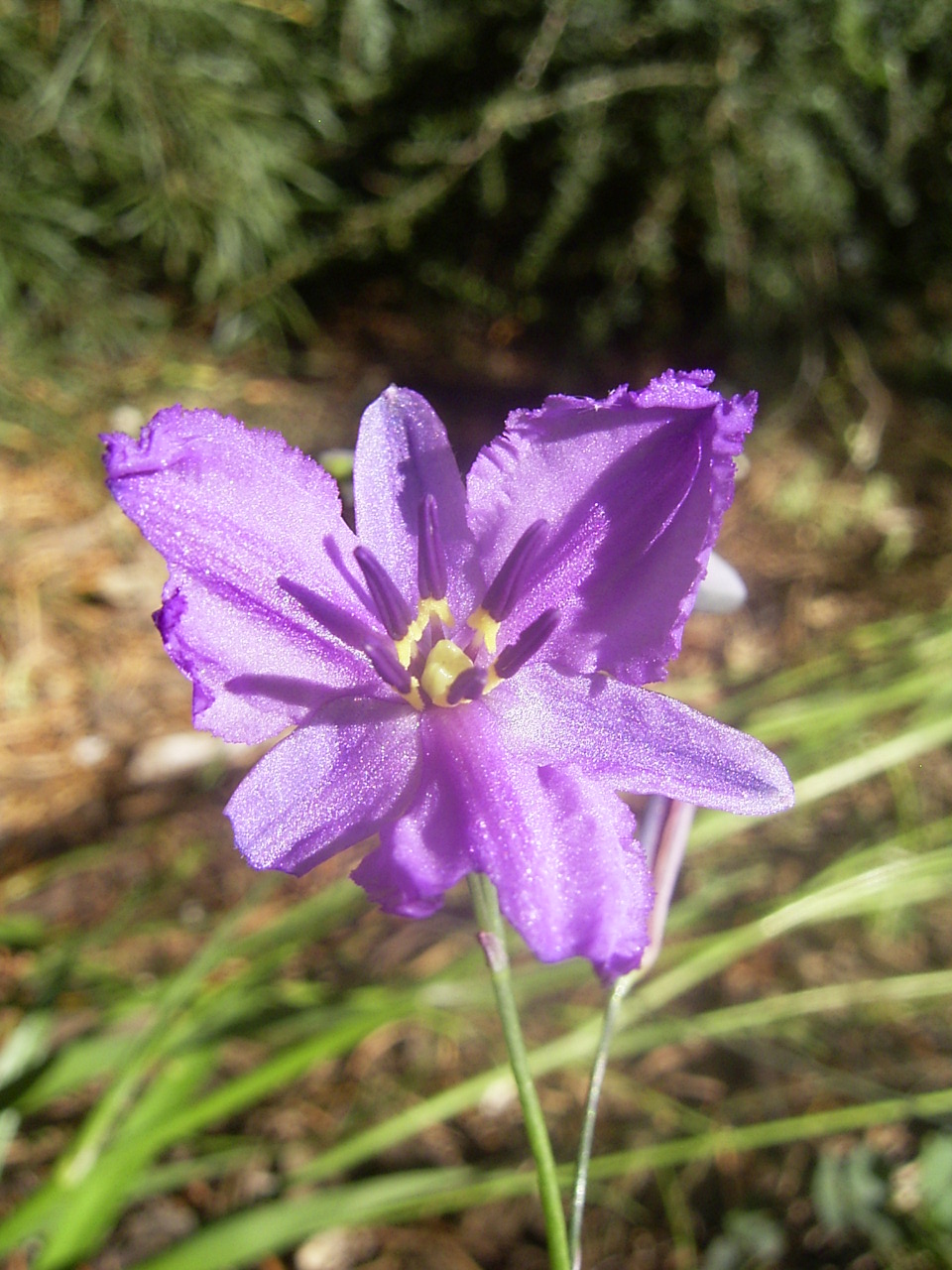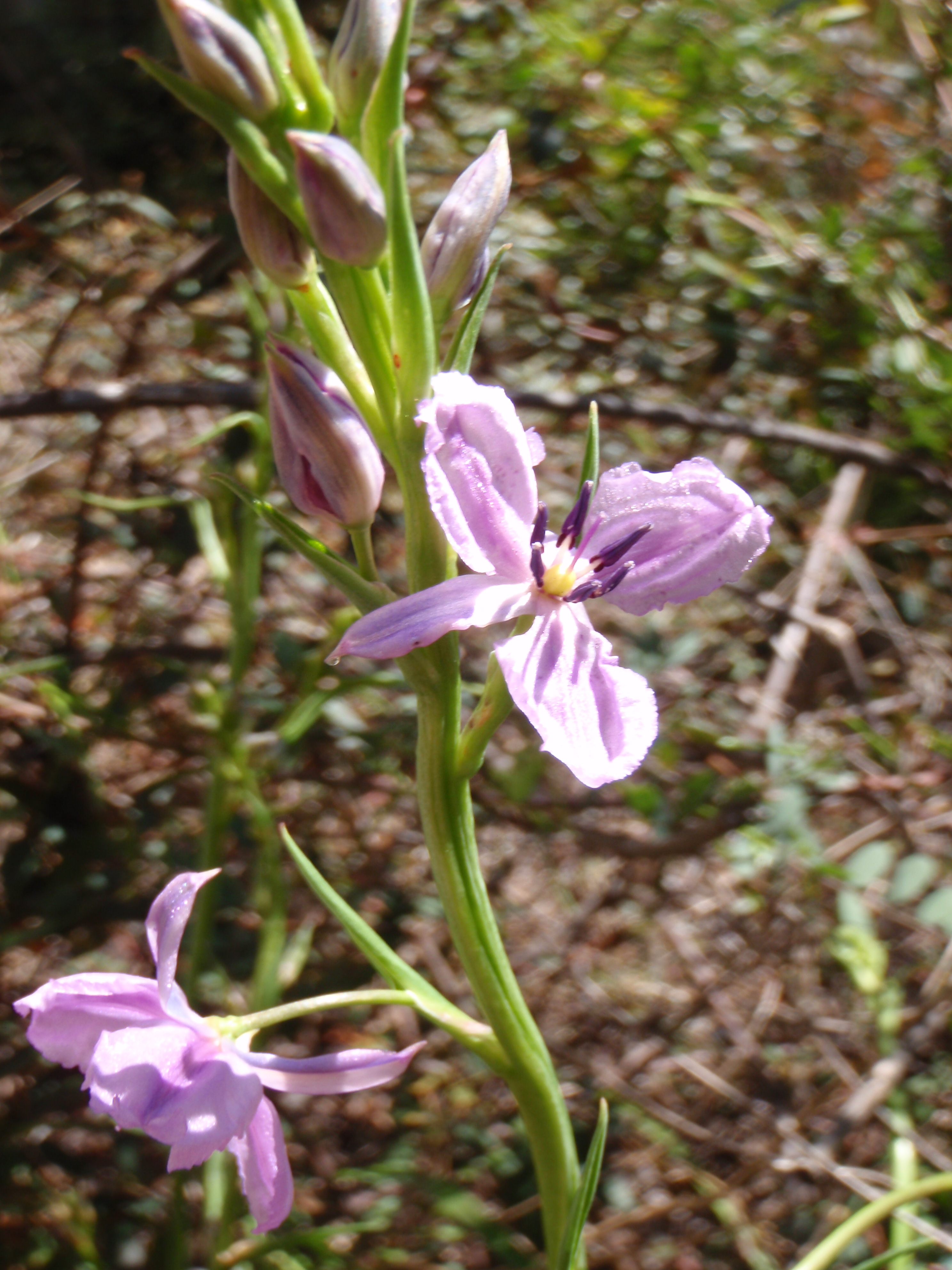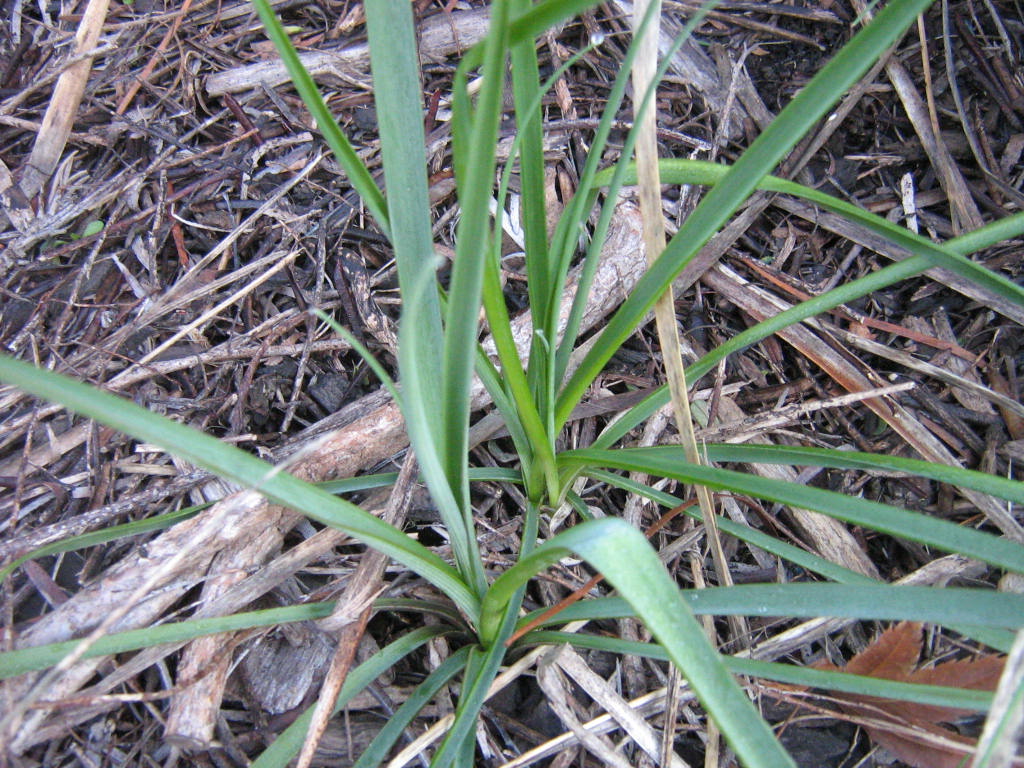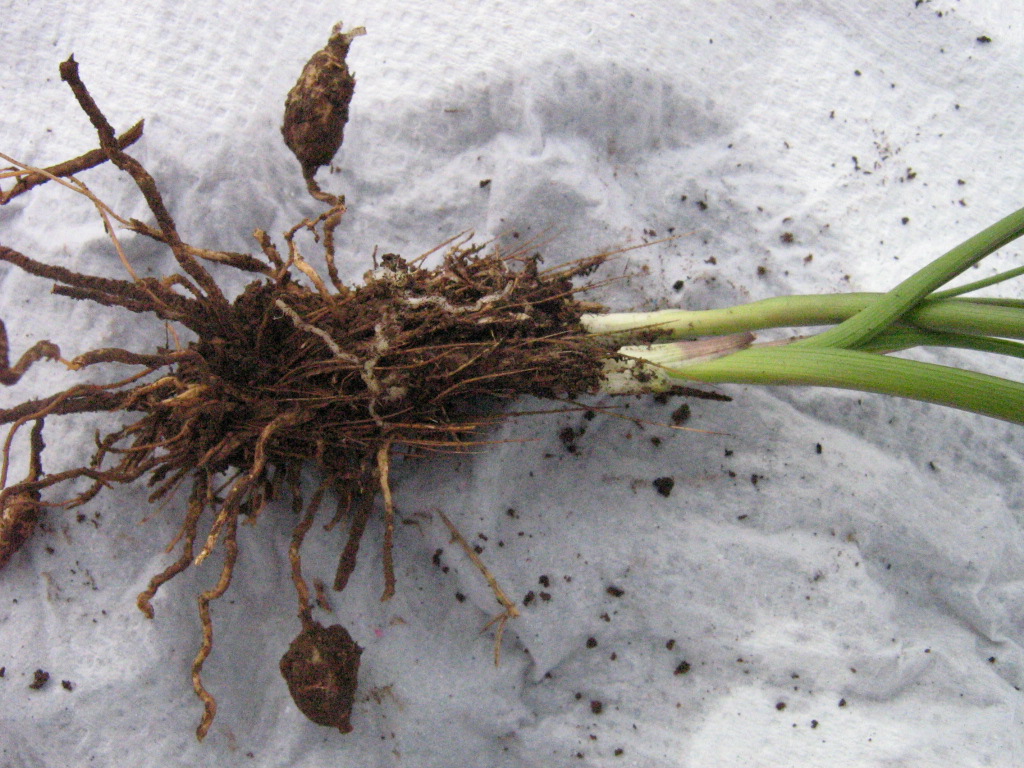Scientific Name: Arthropodium strictum
Common Name: chocolate lily
Family Classification (Clade): Monocots
Family: Laxmanniaceae
Form Description: Dwarf perennial herb with basal grass-like leaves and erect stem.
Height (m): 0.2 – 1
Flowers: Mauve flowers, chocolate scented, with purplish-black conspicuous anthers.
Fruit: Papery capsule – small, round, turn from soft and green to brown and brittle as the seed ripen. The ripe seed are black and firm.
Municipality
Plant Communities
Habitat Notes
Grows on dry hillsides, open forest and grasslands in the Midlands, north-east, and east coast to 300m. Likes well-drained to heavy, seasonally inundated soils. Common in the Tamar region.
Site Tolerance
Dry, Shady, Waterlogged, Windy
Soil Tolerance
Clay, Fertile, Loam, Well-drained
Frost Tolerance
Hardy
General Notes
Various insects are attracted to the flowers.
Propagation Calendar
-
Flowering Month
Jan Feb Mar Apr May Jun Jul Aug Sep Oct Nov Dec -
Seed Collecting Month
Jan Feb Mar Apr May Jun Jul Aug Sep Oct Nov Dec -
Sowing Month
Jan Feb Mar Apr May Jun Jul Aug Sep Oct Nov Dec -
Cutting Month
Jan Feb Mar Apr May Jun Jul Aug Sep Oct Nov Dec
Propagation Method
Seed Information
Seed Collection
Seed shed soon after maturity. Harvest stalks by hand and place upside down in paper bags.
Seed Treatment Method
Standard Scatter seed thinly on to damp potting mix. Hold seed in place by covering with more potting mix to approximately the depth of the seed size.
Seed Storage Life
Several years
Seed Treatment Notes
Seed has 2-3 month after ripening period. Sow in autumn as higher temperatures inhibit germination i.e. not above 18°C. Suitable for hand-seeding in bushland. For some species seed over 12 months old may need stratification for 6- 7 weeks.
Germination Time
4-8 weeks
Cutting & Division Information
The tubers can be transplanted as well as divided, provided they are gathered intact. The tubers are on the roots and can be some distance from the rootstock.



